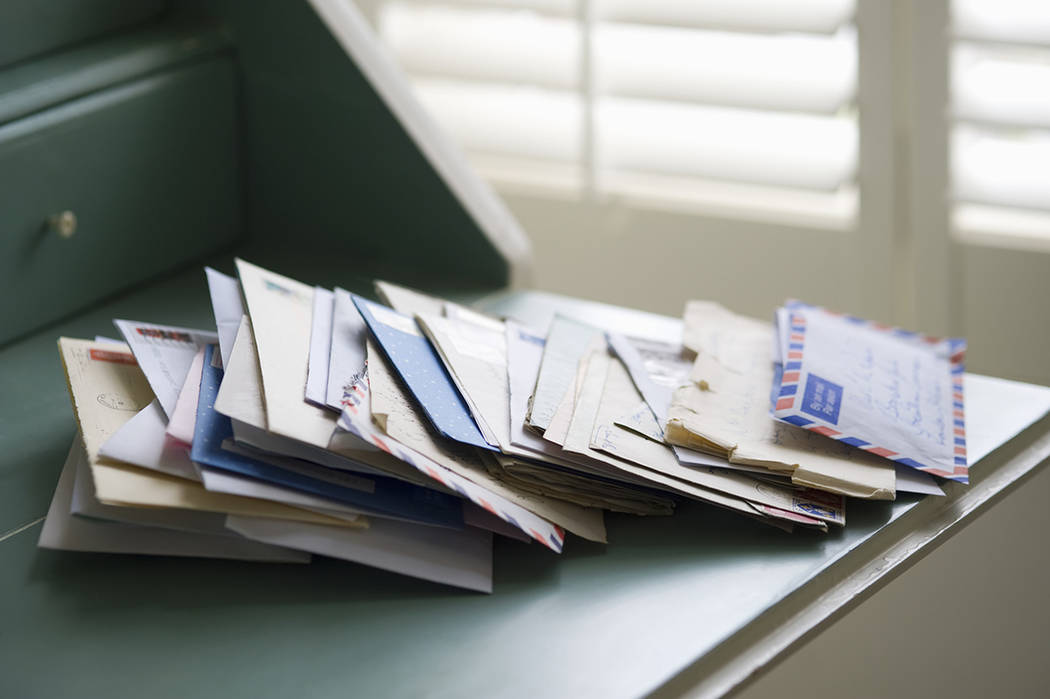
Renewables must not be ignored
Donald Allen Deever’s Nov. 1 letter offered an interesting critique of Question 6 and renewable energy development. While I understand his concerns about wind energy, it is important to recognize that our birds and wildlife are also seriously threatened by climate change.
Recent reports from the Intergovernmental Panel on Climate Change describe an immediate need to reduce greenhouse gas emissions. If we fail to do this, our ecosystems will collapse around us. Installing more clean energy is necessary for our society to survive.
The good news is that we can do this in a way that minimizes the adverse effects on our lands and wildlife. For example, the State Environmental Commission recently approved renewable energy as a use for brownfields and retired mine sites. Siting renewable energy facilities on already developed lands alleviates the need to build on our pristine public lands. Additionally, new wind turbine technology is increasingly being designed to reduce or eliminate bird causalities.
It is inevitable that our energy systems have adverse effects on our environment, but humans are a clever species. We need to be smart about how we deploy renewable technology in our society, not write it off altogether.
Valerie J. McNay
Off-road vehicles will foul air
When I was a boy and got sick, the first thing you always had to do was take a heaping tablespoon of cod liver oil, whether you liked it or not. You held your nose and swallowed it, because you knew it was good for you. That’s how I feel every year when I have to get a smog certificate for my car. I do it because it’s the law, and you know it’s good for you and your fellow citizens.
This law was passed back in the 1970s because our cities were becoming unhealthy seas of airborne cancerous sludge called smog. Off-road vehicles don’t have to take their cod liver oil, because they have no smog equipment to check. They are meant to be used in the countryside, where there is no population to poison with untreated exhaust gases.
When I moved to clean, green Boulder City 36 years ago, I was smitten with the clean, crisp high desert air. There is no reason we should have to put up with untreated, dirty exhaust gases on our city streets.
Some say that it’s only a few machines. That’s like saying I’m going to smash your toe but only with a little hammer. You’ll barely even notice it at first. That doesn’t sound like clean, green Boulder City to me.
And what if it really catches on and we become a regular stop on the desert-churning circuit? Not only do these machines foul the air, but they are noisy. They have no mufflers, only “spark arrestors.” They will also be tracking asbestos dust all over our streets. That doesn’t sound like clean, green Boulder City to me.
It sounds more like a recipe for a wheezy, greasy Boulder City of the future. I love this town, and so do you. Let’s keep it clean, green Boulder City. Clean air is rare. Let’s keep ours.
Carl “Carlos” Raines
City should choose kindness
What in the world is Boulder City doing to itself? We don’t have any business making people’s lives difficult. That is all the city was doing when putting up a sting operation at a crosswalk in front of McDonald’s on Boulder City Parkway.
The continued arrogance of the city in appealing decisions associated with the John Hunt crosswalk case is baffling. I really don’t know the genesis of the attitude which allows the city to keep filing or defending lawsuits, spending millions of dollars making the city right. No one can be right or wrong in the eyes of justice.
All we do is find out what we are as human beings, since we have numerous options stirring within each of us. As Viktor Frankel said in his landmark book “Man’s Search for Meaning,” “Everything can be taken from a man but one thing: the last of human freedoms — to choose one’s attitude in any given set of circumstances.”
The miracle is always a shift from fear to love. Why in the world has the city chosen to be punitive? Why not choose kindness instead?
I always consider myself fortunate to have served on the City Council with kind and caring human beings in a city that gave my family the best it had. We don’t share our humanness the way we did in the past. In the past, we talked with each other regularly and in person. It is critical for human beings to enjoy each other in person. We don’t enjoy love and caring from another person’s presence online. That is why I keep advocating town hall meetings. We have to have enough concern to share as though our presence mattered. It does.
Former mayor and councilman
Eric L. Lundgaard